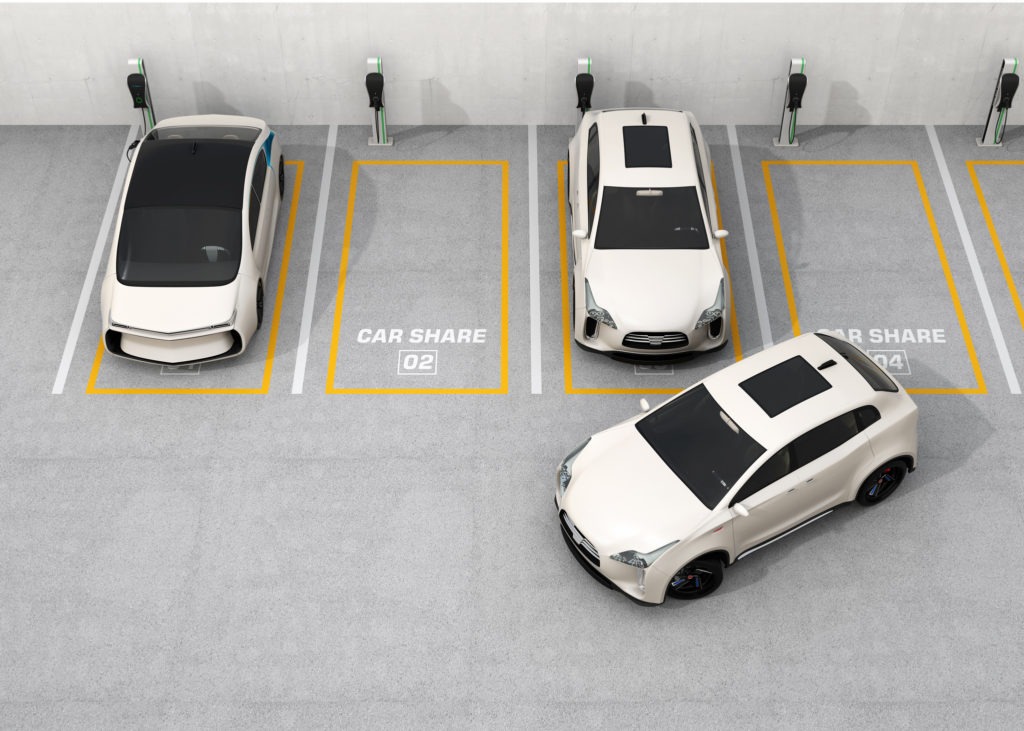Car sharing taking off in earnest in Madrid, with more than a quarter of a million subscribers
14 August 2017

14 August 2017
The Spanish capital is becoming a model example for OEMs as they look to adjust their business models to an increasingly electric- and mobility service-based future, as residents forgo traditional car ownership and car sharing begins to soar.
With a population of 3.16 million in the city proper, nearly one in twelve now subscribe to one of the two main car sharing providers, Daimler’s Car2Go and PSA-backed Emov – with Renault also looking to enter the market soon. The services use all-electric vehicles.
The car sharing providers have smartly worked closely alongside the Madrid city authorities for mutual benefit, which has helped them to enjoy direct encouragement by local politicians (unlike the confrontational approaches often incurred by Uber), which has also enabled them to gain generous perks, including the ability to operate in restricted zones and park almost anywhere for free.
This has allowed them to dramatically drive down operating costs and prices, greatly boosting their rates of adoption, and break into the regular commuter market – key to achieving ubiquitous adoption. The costs are the cheapest in Europe by some margin – with Car2Go users paying €0.21 per minute, compared to €0.34 in Berlin, €0.29 in Stuttgart and €0.31 in Amsterdam.
Car2Go Europe CEO Thomas Beermann told Bloomberg: ′The city is now a kind of benchmark for our future business development. Nowhere else are so many people having a positive experience with an electric vehicle.’
Car2Go’s fleet of 500 all-electric Smart cars in Madrid are rented out as much as 15 times a day on average by its 166,000 subscribers, the highest rate in the company’s 26-city operation.
PSA’s Emov membership has skyrocketed to more than 100,000 in only five months, looking set to quickly overtake Car2Go if the pace continues. It also has a fleet of 500 electric vehicles, Citroën C-Zeros, rented by the minute.
The rapid uptake of demand has encouraged greater competition, with Renault and Spanish infrastructure operator giant Ferrovial in talks to establish a third all-electric network in the Spanish capital, as revealed by Renault’s sales and marketing head Thierry Koskas on 17 July.
The popularity of the services, which are part of a wider increased flexibility to Madrid’s road transport system, has dramatically driven down prices, but has also been met with resistance and resentment from the traditional taxi industry, to which it provides competition, with the taxi industry accusing the services of using public sector perks to boost their private profits.
City authorities, however, are enthusiastic about the changes and are in continual close contact with both Emov and Car2Go. They are looking for ways to reduce the congestion on their roads, as city populations swell. London for example – the most congested city in Europe – is looking to not only limit the growth, but cut three million car journeys from its roads by 2041. As the prices of car sharing services fall, they become increasingly attractive propositions for inner city residents doing short regular journeys compared to traditional car ownership – especially when factoring in the difficulty and cost of parking.
Drivers averaging 8,000km (4,972 miles) per year or less are most likely to delay vehicle purchase decisions or sell their vehicles in favour of the shared mobility services available in their cities, according to Bloomberg New Energy Finance’s Electric Vehicle Outlook 2017 report.
The limited infrastructure of inner cities means that as their populations grow, the numbers of cars as a share of the population will have to fall to avoid gridlock. It is up to OEMs and fleets to provide innovative solutions, working alongside city authorities, to ensure that they retain the business of city populations as private car ownership levels continue to fall – or risk the void being filled by startup giants Uber, Lyft and Chinese near-monopoly Didi.
There is hope even in areas where these players are already dominant, with Car2Go enjoying a 40% surge in growth from a low base in North America across 11 locations in the first half of this year, spurred on by adding upmarket Mercedes-Benz vehicles to its fleet in January. Growth was greatest in New York and Canada’s Toronto and Vancouver, with Vancouver being its largest base with 135,000 subscribers. Vancouver’s near neighbour Seattle was its largest base in the US, with 95,000 members.